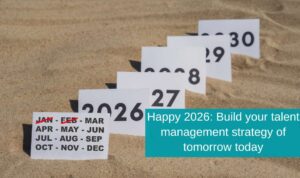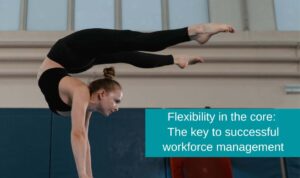Many organisations put a lot of effort in designing and implementing Contingent Workforce (CW) programmes as well as in improving the programmes they already have. The most common objectives driving these programmes set out to achieve cost savings, improve insights and compliance, improve access to the right talent, or a combination of these.
When organisations want to improve their CW programme, we tend to start with defining “improving”, looking at what the elements can be improved, considering insourcing or outsourcing the programme etc. But often one important key to the success in a programme is overlooked: the role of the Hiring Manager.
Role of the Hiring Manager
In most programmes the formal requirements of Hiring Managers are considered and included in the design:
- acceptable time to hire
- acceptable costs for the resource hired
- multiple CV’s to choose from
- reasonable ease of use of the supporting technology via Single Sign-On system access
However, it is not always clear how important the role of the Hiring Manager is if you want the full benefit of your CW programme. Of course process books are made available, reminder mails are being sent and a number of process indicators, like minimum response time, are agreed upon in the SLA of the programme. During implementations Hiring Managers are trained in the use of the technology and the process steps to follow when they want to hire (or extend) a contingent worker. But do they truly understand how they can benefit from the programme?
How Hiring Managers benefit most from a CW programme
The following 3 basics should be taken care of:
- Help the Hiring Managers understand how they benefit from the programme.
- Make sure the Hiring Managers understand the impact they have on realising these benefits.
- Acknowledge the contribution of the Hiring Managers in realising successful hires through monitoring and reporting.
Let’s have a closer look at each of these points:
- Understanding the benefits
Many stakeholders are involved in CW programmes, often with different drivers and objectives. Think of the Finance function looking for cost savings and HR and Risk Management for regulatory compliance. From a Hiring Manager’s point of view these are not necessarily perceived as beneficial.
When Hiring Managers are struggling to hire the right workers for the job (in quantity and/or quality) the objective of achieving cost savings is not exactly contributing to solving their problem. If the objective is changed to “finding the right hire with the right quality at the right time and costs” this suddenly includes the interest of the Hiring Managers. This way achieving the objective is more beneficial to the Hiring Managers. - Understanding the impact
The process of hiring contingent workers in itself doesn’t serve Hiring Managers as much as the result of it. A CW programme should preferably reduce their worries and the efforts they have to make. However, they need to take part in the process and are an essential part of the programme! Their contribution can make the difference between being successful or not.
Example: if you want to hire a scarce profile and the programme has attracted a suitable candidate, you need to respond rapidly… or another organisation will!
So, short response times and quick next steps taken by Hiring Managers are essential in delivering a swift and positive experience for the candidate, increasing the chance of a successful hire. - Acknowledge their contribution
Most process monitoring reports are based on monitoring minimum required performance. Reporting (and follow-up) focuses on achieving certain minimum levels and the occurrence of underperformance. Unfortunately, they do nothing to motivate your hiring community! To achieve that, you need to recognise and acknowledge the efforts and actions of Hiring Managers that have contributed to a successful hiring process. This way they share the success of the CW programme. They might even become ambassadors for the programme with their colleagues and peers. It will increase their sense of ownership for the programme and therefore contribute to the long-term success of the programme.
Looking ahead
CW programmes usually have a long-term horizon. Over time market conditions can shift, organisational priorities can alter and the needs and wants of the Hiring Managers can also change. Hiring Managers are at the forefront of many developments. Their support and input is essential for the identification of changing needs and for the adoption of required changes to keep the programme fit for purpose and future proof.
So, recognising the role of and benefits for Hiring Managers and integrating these in your CW programme (re-)design, will positively support current and future programme objectives, as well as increase your hiring community’s commitment to the programme!
 About the author
About the author
Marc Viëtor is Managing Partner at TalentIn. Marc has worked over 25 years in the HR industry and is highly experienced in advising organisations in choosing and implementing the right recruitment strategy.
TalentIn has extensive national and international experience in developing and improving strategies for the recruitment of your permanent and temporary staff. We know how these programmes can be designed and implemented successfully. We advise, but can also provide practical support. Are you interested? Please contact us for an appointment without obligation via www.talentin.eu, info@talentin.eu or +31103075422





